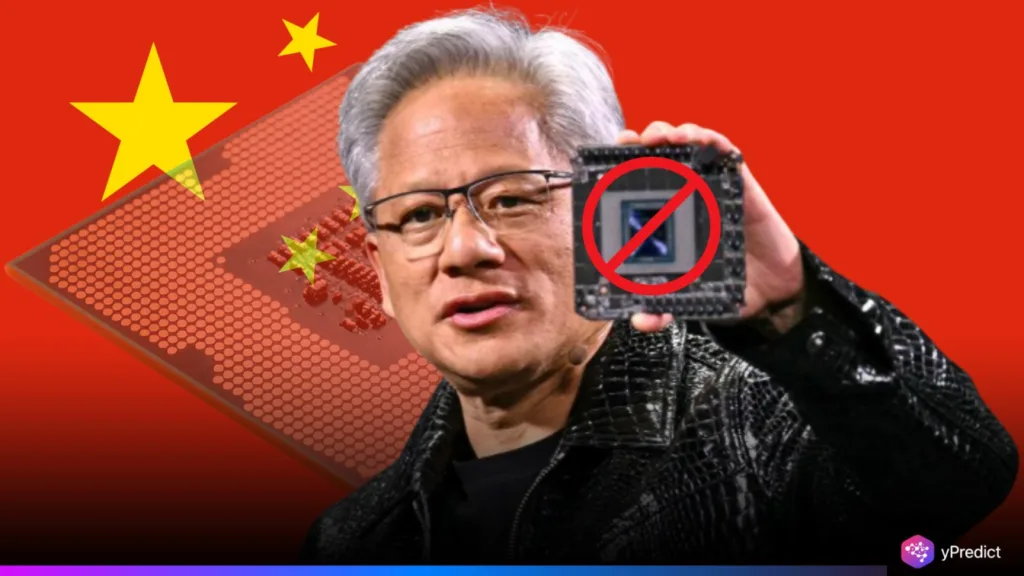
Nvidia CEO Jensen Huang believes selling sophisticated AI chips to China may enable the U.S. to retain its international leadership in artificial intelligence. It is estimated that about 50 percent of AI developers are located in China. The denial of access will lead to division and slow the development of innovation. Exports are important to maintain American technology as the standard technology in the world, according to its supporters. Critics, however, fear that such action can help the military capabilities of China and negate U.S. strategic strengths.
Background and Context
The remarks Jensen Huang made in an interview held in July 2025 convey a momentous stand in the current U.S.-China tech race. It would be hard to overestimate the opinion of Huang. Who is the CEO of NVIDIA, a worldwide leader in AI hardware? The key argument of his is that the U.S. needs to retain its technology as up-to-date and dominant by ensuring that it is available to the rest of the developers across the globe, including China. Since approximately half of the worldwide talent in the field of AI is based in China. Such isolationist policies may prove highly perilous. As Chinese programmers may vote with their feet and create or implement an alternative platform.
This has been an argument following vigilant U.S. export controls aimed at ensuring that China does not get high-performance Artificial Intelligence (AI) chips due to national security reasons. The American government is afraid that these technologies can make China stronger in spying, cyber warfare, or even autonomous weapons. Jensen Huang argues that such a strategy might not be very effective. In the end, China is spending a lot on domestic chip creation. In the meantime, U.S. companies are denied access to a huge market, which may hamper innovation in the country.
Arguments on Both Sides
The supporters of chip shipping state that allowing the Chinese developers to collaborate with the American hardware will preserve American leadership because it confirms the international dependence on American platforms. This creates some sort of gravitational pull on technology where creators fall under and rely on American tools and frameworks. It also generates a huge amount of revenue. Which can be used to fund the R&D, keeping the U.S.-based company on the front foot.
This is perceived by opponents as a risky short-term gamble, however. They argue that in the event that these chips have sold out, they will produce them. Then they cannot be taken back to any full extent. The powers that they have can be re-geared towards a military or an authoritarian use. The dangers are particularly pressing with the dual-use technologies, as the commercial AI solutions can be used for future intelligence, surveillance, or automated weapon systems as well. According to experts on national security, American companies must not assist in advancing the capacity of a geopolitical competitor, specifically in newfangled regions such as advanced computers and machine learning frameworks.
There is a philosophical gap as well. Ought technology to be regarded as a business commodity or strategic asset? Advocates on the side of Jensen Huang are much more likely to uphold the open innovation ecosystem. Whereas those critical focus on tech sovereignty and containment. After all, the dispute highlights an underlying debate as to the place of AI in the contemporary international order and its ethical set of obligations to technology companies.
Strategic Choice in the Age of AI
The AI chip export controversy is not a simple trade issue. It is the question of whose rules will be applied to the next technological age. The fact that Jensen Huang occupies a leading position gives relevance to the advantages of connected innovation, but it also reveals the dangers of strategic overreach. The U.S. has to balance the benefits of open systems and the dangers of fueling an enemy. Policymakers must choose between remaining dominant through inclusion or remaining advantageous through restriction as AI becomes more and more central not only to economic growth but also to national defense. The result will not only have its influence in the AI industry. But it will also determine the world power dynamics of the future decades.






